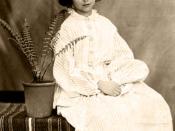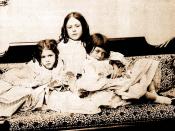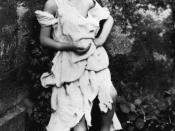Art is a means of expressing certain thoughts and/or criticizing certain aspects of life through representing certain issues of reality, directly or indirectly, that would inform the reader of what is in the writer's mind; leading to certain realizations by society towards the aspect in study. I will try to prove this definition which was based on earlier defied definitions set by critics, as well as agree with issues raised by other critics, whom we had had the pleasure of studying, through Lewis Carroll's novel; Alice's Adventures in Wonderland which will serve as the proving grounds.
Taking in consideration that the reader knows, or at least possesses some background, about the novel in study, I will first of all establish the issue of experience raised within the novel, proving John Dryden's theory. In An Essay of Dramatic Poesy, Dryden emphasized the element of experience through comparing Ben Jonson with William Shakespeare.
He believed that Jonson is the more skilful, but Shakespeare is the more talented as he had "the largest comprehensive soul" (Dryden 381) which enabled him to communicate with reality and so, present it. He also gives Shakespeare more significance through emphasizing his lack of education: "Those who accuse him to have wanted learning...he was naturally learned" (Dryden 381), for he added from his experience in life and "looked inwards" (Dryden 381) which enabled him to add parts to his works that touched the audience deeply.
Lewis Carroll's own experience was reflected all throughout the novel Alice's Adventures in Wonderland. For one, the original written text was dedicated to Alice Liddell, the daughter of the Dean of Christ Church College where Carroll lectured, for his deep love to her and her special request for it to be done. The originality of the text was based on a...


